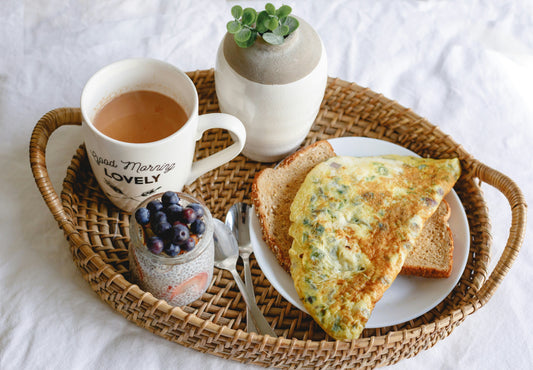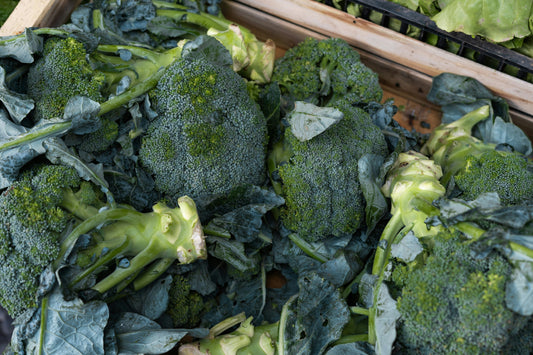I am a big advocate for plant-based eating, I believe that for good health we should be following a diet made up of whole plant foods topped up with a few animal products like; organic butter and eggs, lean meat, poultry and fish. Animal products contribute important nutrients to your diet, such as; iron, zinc, vitamin B12, vitamin D, vitamin B6 and calcium. For many people, animal products hold a valuable place in their diet.
This week is World Iron Week and iron is a nutrient which I have come to be particularly focused on through my work with women.
It is amazing how drastic your health can diminish with low iron intake. Energy, quality sleep, recover from illness and your glow all decrease when your iron levels are low. Women can became particularly iron deficient post pregnancy, during breastfeeding and when experiencing heavy periods.
If you have noticed a dip in your energy then I can not urge you enough to check in with your doctor or natural health care provider to get your iron levels checked. More info here about testing.
For those who eat animal products, beef and lamb is a great source of iron and I encourage consumption at least twice a week. Not only does beef and lamb provide iron but other important nutrients too.
Read below some of my favorite ways of preparing beef and lamb, courtesy of Beef and Lamb NZ.
What is iron?
Iron is a mineral found in the soil, air, rocks and water. Plants absorb iron from the soil and pass it on to animals and humans. Iron is an essential mineral and needed in order for many functions and chemical reactions to be carried out in the body.
There are two forms of iron found in our food, haem and non-haem iron:
Haem Iron
Haem-iron is from the haemoglobin in animal meat and is well absorbed by the human body.
Non-Haem Iron
Non-haem iron is found in plants and dairy and is not as well absorbed as it is more affected by other substances in the digestive tract.
Why do we need iron?
Energy
Iron is needed to convert food into energy for our organs and muscles to use. Without sufficient iron there is a lag in this chain of events, leaving you feeling tired and fatigued.
Oxygen Transport
Oxygen is carried around the body by haemoglobin, a protein in red blood cells. Iron facilitates the carrying and offloading of oxygen, without it the muscles become fatigued and tired.
Healthy Immune System
The immune cells in your body require iron in order to fight infections. Low iron stores put you at greater risk of infections and illnesses.
How much do I need?
Here is a comprehensive table listing the Recommended Daily Intake (RDI) amount of iron for males and females at different life stages.
Please note that certain health conditions will alter how much your body is able to store and use, if this applies to you then you should be guided by a health professional as to how much iron you need to consume.
Signs of deficiency
If you are experiencing more than two of these symptoms you may like to consider getting your iron levels checked by your doctor or nutrition professional:
- Fatigue
- Frequent colds, flus, or infections
- Feeling cold often
- Tiring easily with small amounts of activity
- Lack of concentration
- Reduced appetite
- Dark under eye circles
Where can I get it?
Sources of haem iron:
- Beef
- Lamb
- Chicken
- Fish
- Mussels
Sources of non-haem iron:
- Spinach
- Beans
- Lentils
- Parsley
- Beet greens
- Pumpkin seeds
- Dried apricots
- Broccoli
How do I improve my absorption of iron?
Avoid foods and drinks such as tea and coffee which are rich in tannins, as this decreases the absorption of iron, as does calcium, so avoid having dairy products with iron rich foods. Soaking (overnight then discarding the water) nuts, seeds, legumes, and grains can help to remove the phytic acid which is present. Phytic acid reduces the absorption of non-haem iron by as much as 50%.
Vitamin C increases the absorption of non-heme iron, so include lots of brightly colour vegetables in your meals, or citrus fruit, strawberries or kiwifruit straight after your meal to improve the amount of iron that is absorbed.
Heal your gut - poor gut health or a damaged gut will dramatically reduce how many nutrients you absorb, including iron. Head over and read the gut blog for more information.
Do I need to eat red meat for great health?
Simply put, no. Red meat is a fantastic source of iron, zinc and B12 among other nutrients but it is not the only source of these nutrients. With the exception of B12, the other nutrients can be found in a variety of plant foods (B12 needs to be obtained through fortified foods or a supplement if cutting animal products from the diet).
I believe that red meat should be included in your diet if it is something you enjoy eating and you can source ethically produced and grass-fed raised product. However, if you choose not to eat animal products for religious, ethical or personal reasons then you can still maintain a healthy diet, you just need to ensure your diet has variety and you are eating the plant-based sources of these nutrients.





